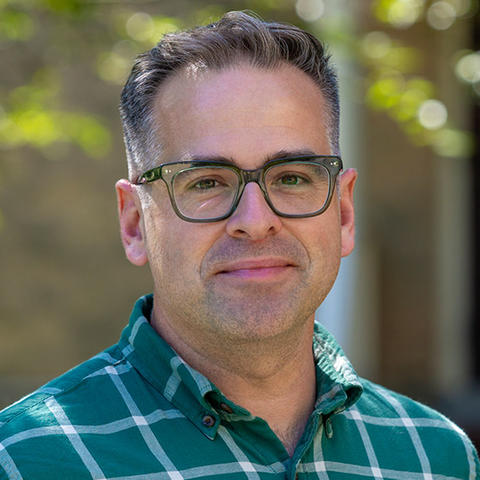Summer Centered: Anjali Agarwal '27 Maps Pennsylvania's Toxic Prisons and Explores Criminal Justice Reform

Photo by Mac Sanders '24.
Details
The prospective political science major is engaged in two part-time summer experiences. Both are focused on the effects of criminal justice and the carceral system across the state.
For more than 200 years, coal has been a defining characteristic of Pennsylvania’s landscape and industry. Though its use to heat homes across the state has declined precipitously to less than 1%, Pennsylvania remains the third-largest coal producer in the nation and ships vast quantities of the natural resource off to other countries, according to the U.S. Energy Industry Administration.
Pennsylvania’s coal legacy has had significant deleterious effects on its natural environment and the health of some of the state’s vulnerable incarcerated people. As a Philadelphia Justice and Equity Fellow through Haverford’s Center for Peace and Global Citizenship this summer, Anjali Agarwal ’27 is working with the Philadelphia-based Human Rights Coalition to advance its Toxic Prisons Campaign. The work, she says, is a joint effort to combat environmental and carceral injustice across the state.
“We’re specifically focused on prisons built near Superfund sites or around environmental injustice issues and the health impact they have on incarcerated people and surrounding communities,” says Agarwal, who is working alongside fellow Abigail Malitsky ’25 this summer.
One such site is SCI Fayette, south of Pittsburgh, which was built on the site of what was once the largest coal preparation plant in the world. It remains surrounded by coal slurry ponds and millions of cubic yards of coal refuse. In other words, the coalition contends, SCI Fayette sits inside what can only be described as a toxic dump. People incarcerated there and those living in the nearby town of LaBelle have reported contaminated water and severe health issues like cancer.
But Agarwal says SCI Fayette isn’t the only such facility with significant environmental issues. A big part of her and Malitsky’s summer project has been using mapping software made available by the Department of Environmental Protection to find where prisons are built near nuclear waste sites or other toxic areas.
“What we hope to accomplish with this project is to encourage more scholarly research about these issues,” Agarwal says. “We’re trying to reframe this as less of a one-time issue to a larger awareness that we build prisons in underfunded, unsupervised areas with little regard for the lives of those inside.”
Simultaneously this summer, Agarwal is working with Professor of Political Science Zach Oberfield on his forthcoming book that tracks the story of the significant shift in criminal justice reform in Delaware County, where Haverford partially sits. Since the county shifted in 2019 from nearly 150 years of Republican leadership to a Democrat-led county council, Agarwal says, its criminal justice system has undergone major transformations. The largest, perhaps, is the change of ownership of its primary correctional facility from private to public.
“I've been tasked with looking at criminal justice systems more abstractly, relying heavily on sociology literature that asks what happens when criminal justice systems are a series of interconnected parts and institutions,” she says. “When we try to reform criminal justice, just as Delco has, can you reform individual parts of the system, or do there need to be shifts across the whole thing?”



